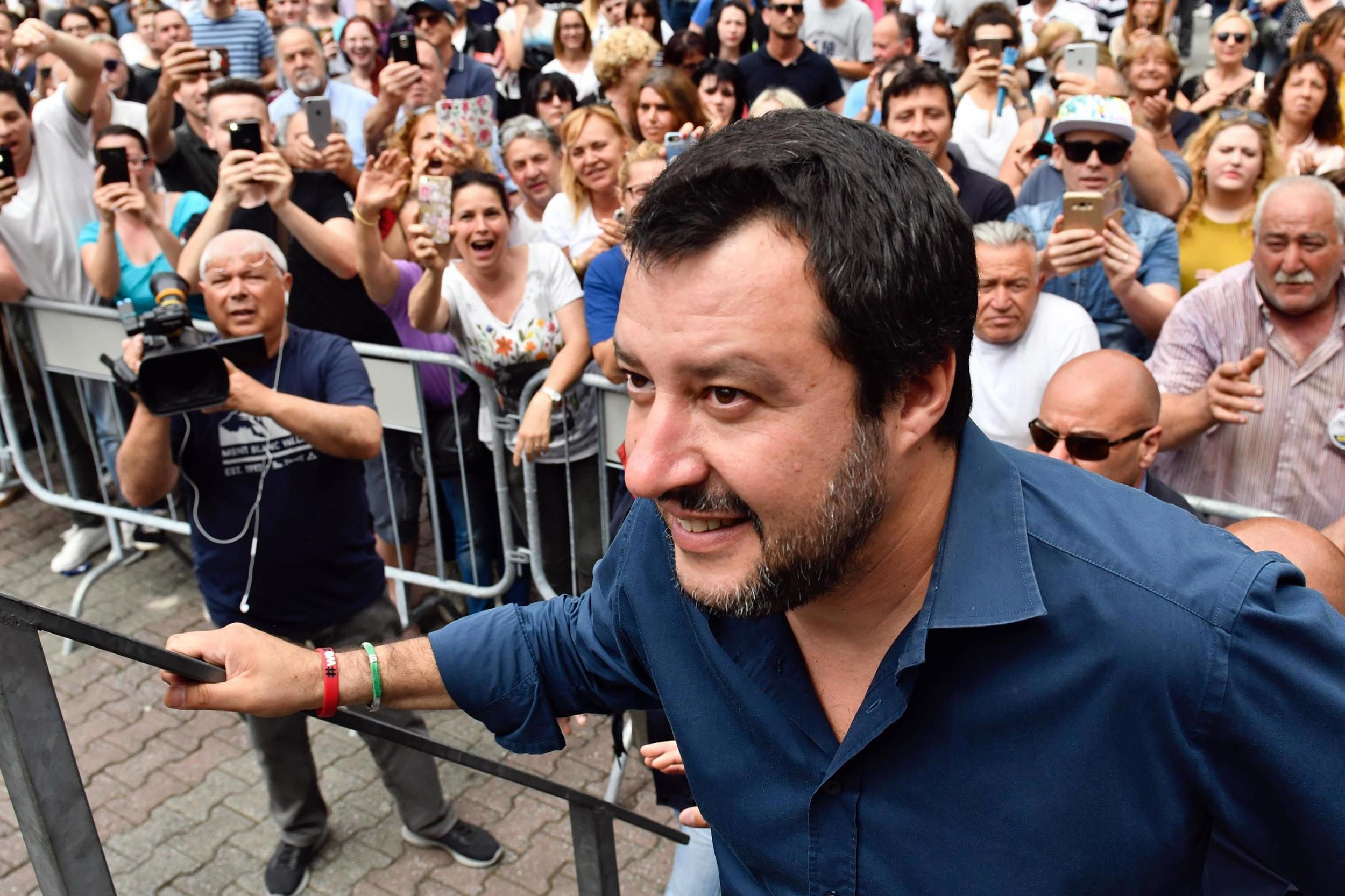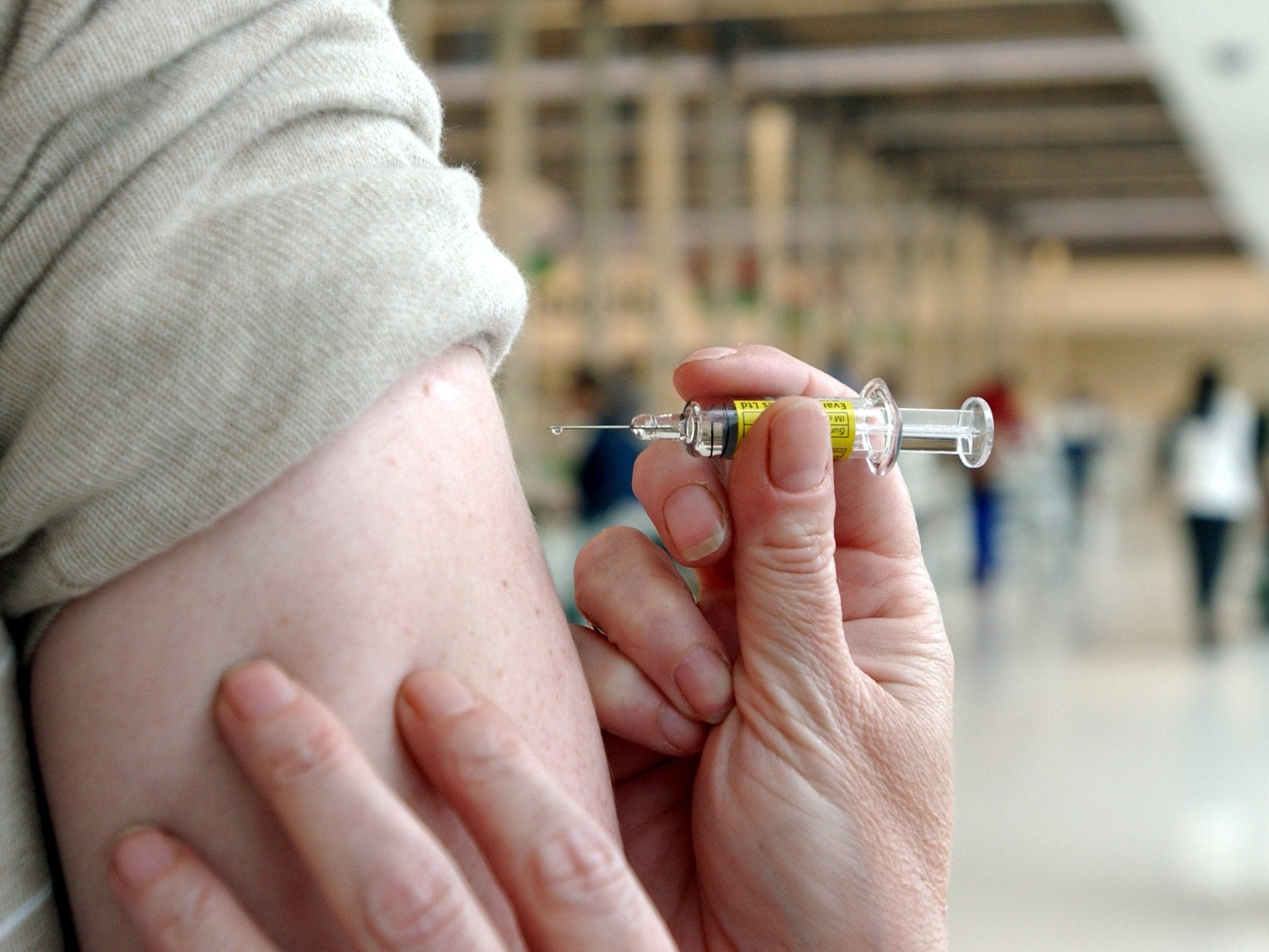How the anti-vaxxers are winning in Italy
Populist coalition government appears to have capitalised on unfounded fears over vaccination side-effects

As the new school year has begun in Italy, parents no longer have to prove their children have been immunised – highlighting a clash of priorities, stoked by the new populist government.
In 2014, the Global Health Security Agenda had tapped Italy to lead world vaccination strategies.
But just four years later, the country has instead become the testing ground for anti-vaxxers, a movement growing across Europe and the US, and whose ideologies often share space on the political landscape with populist parties.
"Ten obligatory vaccinations are useless and in many cases dangerous, if not harmful,” Italy’s interior minister Matteo Salvini said, in the run up to the general election in March.
The measles epidemic in Europe as a whole is now at an eight-year high.
Mr Salvini, from the League party, and also the country’s deputy prime minister, shares something in common with other leading populists such as his European ally Marine Le Pen and US president Donald Trump. As part of their anti-establishment views, they are also choosing to target science.
The League and it’s coalition partner, the Five Star Movement, both stood with anti-vaxxer groups during the electoral campaign, promising to oppose the pre-existing law that made vaccines mandatory.
Soon after forming a government, the new health minister Giulia Grillo lifted the existing requirements by allowing parents to self-certify that their children have had the compulsory vaccinations, hitherto necessary for school admission.
But the parliament then said the requirement to provide proof of vaccinations would just be postponed until the 2019-2020 school year.
On one side, anti-vaxxers now accuse the League and the Five Star Movement of betrayal.
And on the other, confusion and legal uncertainty about compulsory vaccination has made the start of a new year much more difficult for vulnerable children, such as those with suppressed immune systems.

“I’m not ignorant,” says Anna Pettinarolli, from Genoa, the port city of northern Italy.
“I am a 35-year-old financial advisor who cares for her child. I believe that vaccines can cause damage, and that’s why I have been persuaded that parents have the right to choose if they should vaccinate their children or not.”
Ms Pettinarolli is a board member of Comilva, the Italian Movement for Freedom of Vaccination – one of the most well-known of all the Italian “free-choice”, or anti-vaccination associations.
Take a look at the vaccination rate: look at the percentage of unvaccinated kids, and you’ll know how big our numbers are
“Our movement has grown over the last 30 years, and in particular in the last two years," she says. "Do you want to know how many we are?
“Take a look at the vaccination rate. Look at the percentage of unvaccinated kids, and you’ll know how big our numbers are.”
These numbers are exactly why the World Health Organisation is so concerned about the rise of the anti-vaxxer movement in Italy; the country’s vaccination rate is far behind the goal.
To stop transmission of infections, 93-95 per cent of the population should be immunised, the herd immunity threshold. But in 2015, Italy’s paediatric measles vaccination rate was around 85 per cent for the first dose and 83 per cent for the second dose.
Scientists say that rather than becoming the leader in a global vaccination strategy, the country has become a black sheep.
When measles rates soared across Europe in 2017, the number of cases was three times higher than the year before. The two countries with the highest number of cases were Romania and Italy, with Italy accounting for 34 per cent of new cases. And in a sample of 5,000 of these cases, 89 per cent were unvaccinated people, according to the European Centre for Disease Prevention and Control.
In 2017 Beatrice Lorenzin, the former health minister, reacted to the fall in vaccinations by introducing a law that obliged children under the age of six to undergo 10 routine vaccines before enrolling in nurseries and pre-school.
But this mandatory vaccination policy appeared to fuel the no-vaxxers protest – and populist movements capitalised on it.
“What Italy is seeing is not a vague sentiment, or parents' response to some abstract concern about vaccines. It's the product of real people and specific facts,” says British journalist Brian Deer.
“This is principally the achievement of the disgraced former British doctor Andrew Wakefield, and a group of enablers who work with him, aiming to destabilise public confidence in vaccines.
“Embittered after he was caught falsifying vaccine research, he can do this because of the opportunities provided by social media.”
Mr Deer has become the unofficial debunker of the claims of anti-vaxxers. Twenty years ago, Wakefield published a study in The Lancet suggesting an association between the MMR (measles-mumps-rubella) vaccine and autism and gastrointestinal diseases.
This paper is at the origins of parents’ growing scepticism towards vaccination – but Mr Deer showed that Wakefield had manipulated evidence and had a conflict of interest. As The Lancet itself had to admit, the study was “fake news” long before the term was popular.
Nevertheless, the fake news continues to be spread online, and public confidence in vaccinations continues to drop, and, as Mr Deer points out, the result is polarisation.

As was the case with Donald Trump – who tweeted and claimed that vaccines and autism are linked – at first Italian populists rode the wave of anti-vaccine sentiment in their election campaigns.
On the other side, scientists are trying to adapt and react.
Roberto Burioni, a professor of microbiology and virology at the Università Vita-Salute San Raffaele in Milan, is trying to use social networks to oppose no-vaxxers.
“The drop in vaccination rates made Italy comparable to Namibia or Ghana – that’s unacceptable," he said.
“Vaccines are necessary for public health: a high rate would mean that even children that can’t be vaccinated because of immunodepression can be protected from infections.
“I’ll continue explaining this whenever I can. This has cost me lots of threats and intimidations from fanatics, too.”
Join our commenting forum
Join thought-provoking conversations, follow other Independent readers and see their replies
Comments
Bookmark popover
Removed from bookmarks